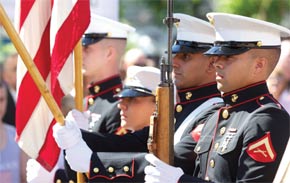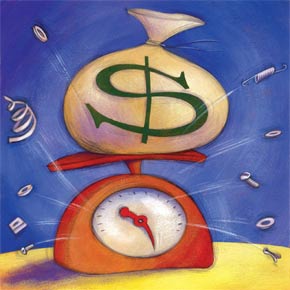We can all remember sitting in class daydreaming about other things rather than listening to the teacher lecture about a subject we found uninteresting. Kids today really haven’t changed. They are the same everywhere. Maybe they need to find a subject they can not only learn but where they can interact—how about waking them up to music!
Why indeed, should kids take music classes in school? There are so many reasons that it would take this entire article to enumerate them all. Besides being fun, one of the most significant aspects of taking school music classes is students who enroll in music classes do much better in other academic courses than students who do not take school music. This fact is proven and replicated numerous times in scientific research studies and should not be ignored by parents.
We are fortunate indeed that our local Tri-Valley school districts offer a full range of music courses in the elementary, middle and high school grades. These courses are both for the nonperforming, and performance oriented student in band, orchestra or chorus. Also many surrounding communities offer community bands where one can continue to play music for a lifetime.
My own experience with school music really changed my life due to Richard Hansen, my high school band director at Acalanes High School. He was such a positive role model and made music come alive for me. He encouraged me to seek a career in teaching music.
Because of my experiences in school music, I gained the most rewarding career a person can have—teaching high school and college classes as a music educator and band director.
In years past, school music has been justified on non-musical extrinsic values rather than on its own intrinsic merits and worth. Citizenship and character was at one time a primary goal of music education. Its function was to create moral, upright children who evolved into productive citizens. A favorite saying was: “Teach Johnny to blow a horn so he won’t blow a safe later.”
Health was another reason for teaching music in schools. Musicians develop lung-power through proper breathing. At one time schools gave Physical Education (PE) credit for Marching Band—marching up and down a field is good exercise equivalent to strenuous exercise in some PE classes.
As a result of Sputnik, in 1957, American education was thought to be behind the Russians, especially in math and science. Almost immediately, new programs in math, science and language were being developed and adopted in American schools. The arts were left behind in the mad rush to catch up to the Soviet Union. Music as an academic discipline became the new rallying cry to justify music in schools.
Music courses were restructured to be more academic in nature and reflect what is really important in a child’s education. One of the goals of this new approach to music education was to “teach students to perceive expressive elements in a wide range of musical genres and styles,” from, Foundations and Principles of Music Education by Leonhard and House.
Today, teaching music in the schools is accomplished by teaching music history and music literature. Very important in the learning process is developing skills, including listening; responding; singing; playing instruments; reading and writing music. The development of attitudes and appreciation and the ability to decide the worth and value of music are essential in teaching music. “Music, like language, is an accomplishment that distinguishes us as human,” writes J. Vudkin, in his book, Understanding Music.
A resolution adopted by the American Association of School Administrators said: “It is important that pupils, as part of general education, learn to appreciate, to understand to create and to criticize, with discrimination those products of the mind, the voice, the hand and the body that give dignity to the person and exalt the spirit of man.”
“The primary purpose and goal of music education is to develop aesthetic sensitivity to music, that is, to heighten the quality and impact of musical experiences,” originally adopted from (in 1971 and again in 1989) the Visual and Performing Arts framework of the California State Department of Education. Also, music in the schools was recognized by law as a core subject along with math, science, language and history in both the Educate America Act and the No Child Left Behind Act, in 2001. It has been said that, “It is evident that education without the fine arts is fundamentally impoverished and subsequently leads to an impoverished society.”
After retirement from teaching, my wife and I started the Danville Community Band that now has a roster of 90 volunteer musicians ranging from ages 15 to 80 plus. One is never too old to enjoy playing music and the younger one starts, the better. Each year, the band donates a musical instrument to local deserving students in middle and high schools.
Please call your local school and speak to the teachers, both instrumental and choral, about music classes your child can take. It many cases it can be a life changing experience and can be enjoyed way beyond the school years. Don’t let your child miss out—awaken them to the world of music! They will thank you for years to come.
Please submit your questions and comments to banddirector01@comcast.net
Visit our website at www.danvilleband.org for up-to-date information about the Danville Community Band.






